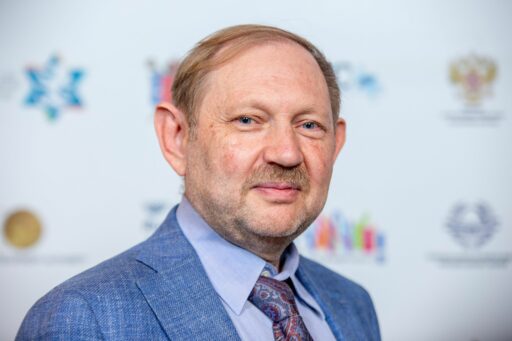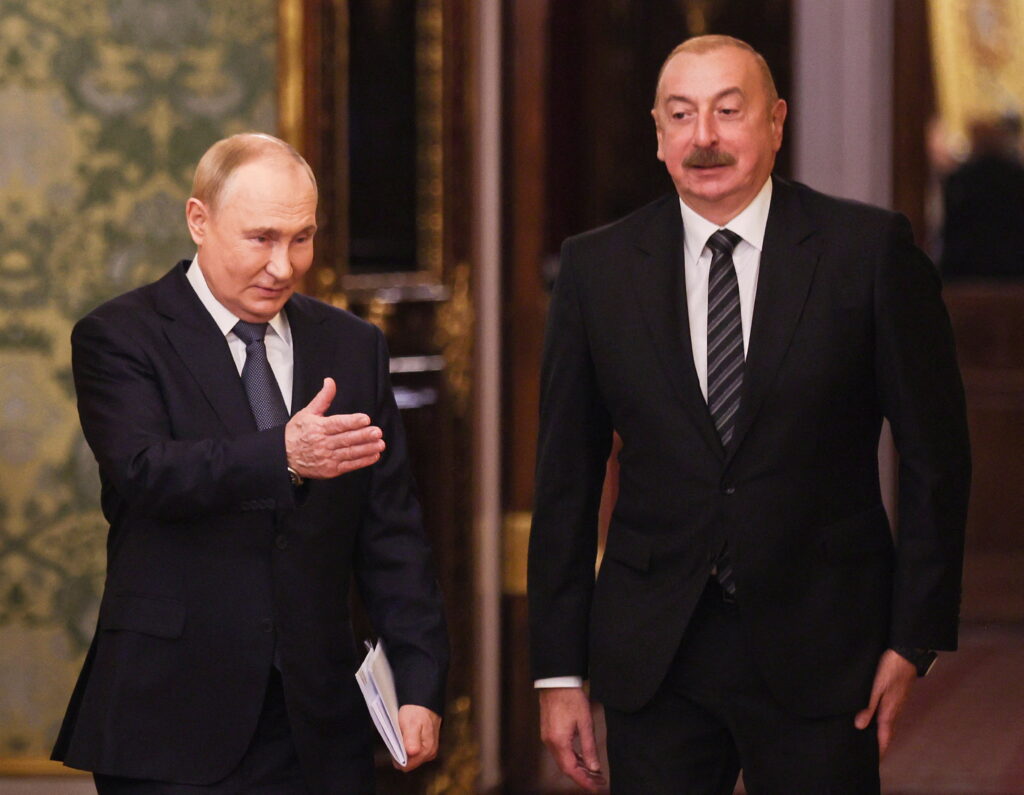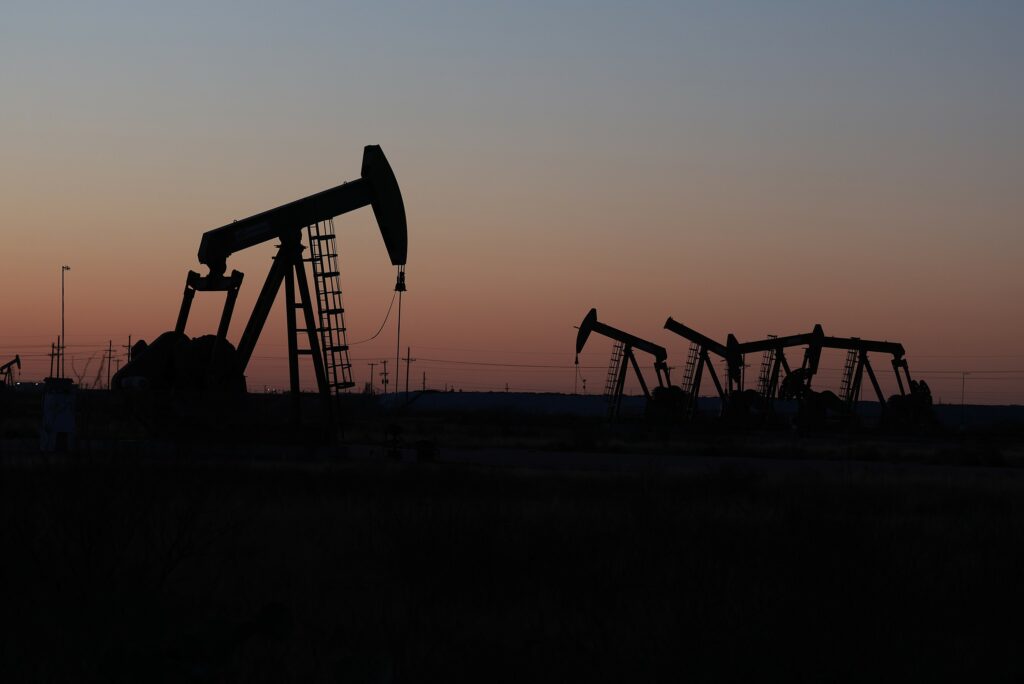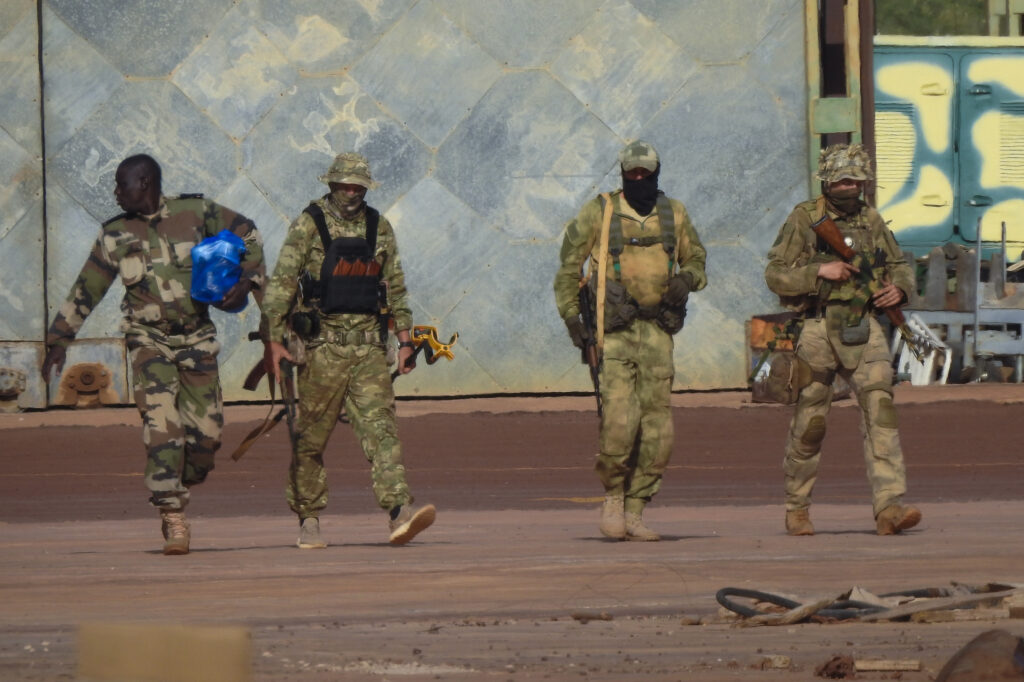The diplomatic scandal between Ukraine and Israel that broke out on August 10 began with a report in the Kyiv Post, which cited «a source in the National Security and Defense Council of Ukraine» as saying that the Ukrainian authorities were discussing the idea of canceling the visa-free regime with Israel, since the latter had allegedly «failed to provide Kyiv with any real assistance,» undertakes «hostile actions against Ukraine» and generally «has been taking a pro-Russian position.» Therefore, the Bankova street (aka the Presidential Administration of Ukraine) intends to seek Israel’s exclusion from the Ramstein Air Base meetings because of the alleged «real danger that the information discussed with Israel at these meetings might get leaked to the aggressor state.»
It is clear that the news caused quite a stir in the public space of Ukraine, Israel and the Jewish world. And judging by the responses it became another indication of the accumulated mutual irritation of the leadership of the two countries.
The subject and context of the diplomatic conflict
Among the many accusations against Israel cited by the Kyiv Post, Israelis were most outraged by the far-fetched allegation that Israeli participants «leaked details of the Ramstein discussions to the Russians.» The claim itself (unsupported by evidence) that it is the Israelis — and not Russian agents in Ukraine itself, whose disclosure and neutralization at almost all levels is regularly reported by the Kyiv authorities — who constitute the channel for leaking critical defense information sounds absurd. More importantly, for the Jewish consciousness such a demarche sounds eerily like another «blood libel». The obvious historical allusions make Israelis recall, for example, the Dreyfus affair (the 1894 false accusation leveled against a Jewish officer of the French General Staff who was suspected of spying for Germany, which became the impetus and symbol of the wave of European racial anti-Semitism at the time). Fortunately, this topic did not gain much traction in Israel’s public discourse, although it did clearly leave a bitter aftertaste.
The other definitions of the Israeli position, which were voiced to Kyiv Post by its «sources» in the Security Service of Ukraine, did not go beyond the standard set of (at least, far from always justified) claims of the Ukrainian authorities against Israel that have been articulated for the past year and a half. If we check these accusations and reprimands against reality, we should mention that Israel immediately condemned the Russian invasion and has been providing Ukraine with large-scale humanitarian and material aid, as well as diplomatic and political support since the first weeks of the war. A recent example of this aid is the transfer of several tons of medical supplies to the Ukrainian Armed Forces for a total of about 100 million hryvnias/$ 2.7 million. While neither a member of NATO nor an official co-guarantor of Ukraine’s security, Israel nevertheless supplied Ukraine with protective equipment, some types of defensive systems and non-lethal weapons. According to Israeli leaders, by doing so, Israel has amply demonstrated its commitment to Ukraine and the Ukrainian people.
It is also true that Israel has not officially joined the West’s economic sanctions against Russia, but in practice it does not take actions that help circumvent these sanctions. Israel also refrains from supplying the Ukrainian army with offensive lethal weapons and Israeli air defense systems.
The rationale behind this position taken by the Israeli authorities has been voiced more than once, and it boils down to two main points. First, Israel’s skies are covered by a multi-level system of defense against various types of aircraft and missiles of long, medium and short range, adapted to the geographical features and specific needs of the country’s defense. It is impossible to remove individual components from this system without weakening it, and as a rule, Israel does not have a surplus of such systems, and neither does it have extra drones or other types of lethal offensive weapons. Such deliveries to foreign countries are carried out mainly on the basis of long-term futures contracts and, if it is a strategic partnership with specific countries, often involve the transfer of technology for the production of such weapons «on the spot» (in the second half of the last decade, joining such cooperation schemes was also discussed with Ukraine, but Kyiv preferred Turkey to strategic military-to-military cooperation with Israel).
Secondly, Russia plays a significant role in the Middle East, primarily in Syria, which Moscow’s ally Iran is trying to turn into a springboard for aggressive actions against the Jewish state. Based on the priorities of national security and the protection of its citizens, Israel is interested in preserving the agreements and understanding reached earlier, according to which Russia somewhat restrains Iran and does not obstruct the IDF’s freedom of action against Iranian and pro-Iranian groups in Syria and their production and logistical infrastructure.
Certain shifts in this scheme are possible due to the growing strategic rapprochement between Moscow and Tehran and, accordingly, the latter’s transformation into a «common enemy» for both Israel and Ukraine, even if it is rather a matter of coinciding interests. It is through this lens that Kyiv assesses the attacks attributed to Israel on Iranian production facilities for the manufacture of Shahed-136 attack drones in Isfahan in January 2023 and on Iranian assembly plants in Syria in 2022−2023. All of this, one assumes, has a direct impact on the volume of drone deliveries for use by the Russian army against Ukraine.
A poll conducted in January by the respected Kyiv International Institute of Sociology (KIIS) showed a significant increase in the share of Ukrainians who support the Jewish state in Israel’s conflict with Iran: from 27% in December 2021 to 64% in January 2023.
At the same time, direct Israeli supplies to Ukraine of electronic suppression and early warning equipment for air/rocket attacks, as well as other defense systems, are underway (or under discussion). In addition, third countries may supply Ukraine with some kinds of weapons containing Israeli components.
Kyiv considers Israeli support and assistance to be extremely insufficient, and the reasons voiced as to why Israel’s direct involvement in the Russian-Ukrainian confrontation is impossible — unconvincing excuses. Perhaps this position reflects the mood of Ukrainian society as a whole, which in recent years has developed an attitude toward Israel as a «role model.» Israel can be seen as an example of a country that in the conditions of permanent armed conflict was able to build a liberal democracy, to ensure the flourishing of high-tech economy and social sphere, to form a strong strategic alliance with the U.S. and an optimal model of relations with the EU. But what is especially crucial for the Ukrainians, Israel has succeed in creating a system of national security and counterterrorism. Therefore, it is easy to explain away what is happening on the Ukrainian-Israeli diplomatic track as a «crisis of inflated expectations.»
However, the findings of the above-mentioned KIIS poll do not support this assumption: half of the Ukrainian citizens surveyed are ready to show understanding of the Israeli leadership’s motives for refraining from supplying Kyiv with offensive weapons, and for two thirds of such respondents (33% of the sample as a whole) these motives were not only understandable but also acceptable, and for 17% – «understandable but unacceptable.» The position that providing arms to Ukraine could jeopardize Israel itself was then incomprehensible and unacceptable for 26%. Another 24% found it difficult to answer this question.
Over half of the respondents (53%) believed that Israel provides Ukraine with some support (48% point to humanitarian aid, 17% – transfer of military information and knowledge, 8% – military equipment and weapons). Only 11% of respondents are convinced that Israel does not help Ukraine at all. It is no less indicative that the share of Ukrainian citizens who believe that Israel is a friendly country to them has decreased insignificantly: from 55% in December 2021 to 52% in January 2023. At the same time, the share of those who held the opposite viewpoint also decreased: from 17% to 12.5%. As a result, the balance of positive-negative assessments has not changed much over the two years, amounting to +38% and +39% respectively.
The formal grounds for the current diplomatic mishap is the policy of discrimination against Ukrainian citizens, which, according to Ukrainian officials, is allegedly pursued by Israel. The media, for example, widely circulated the statement of the Ukrainian Ambassador to Israel Yevhen Korniychuk, who claimed that «about 10%» of Ukrainian tourists are deported from Israel without explanation." (в оригинале утрачены закрывающие предложение кавычки) Citing official statistics Israeli Ambassador to Ukraine Michael Brodsky emphasized that of the 47,000 Ukrainian tourists who arrived in Israel in 2023, only 5.4% (about 2,500) were denied entry. Notably, «the vast majority of the cases involved applicants allegedly seeking illegal employment in Israel.»
However, the very existence of facts of unjustified deportation and/or incorrect treatment of tourists from Ukraine (even if the scale of this phenomenon is exaggerated) causes understandable concern. And many Israelis, who massively sympathize with Ukraine in this war, agree. In Israel, public criticism of the actions of immigration authorities and authorities responsible for providing assistance to «war refugees» also continues unabated.
The public was outraged when it became clear that the Israeli government decided not to extend the budget allocated by the former leadership of the country for medical insurance of Ukrainians who arrived after the war began and received a status close to that of refugees. In response to the public outcry, it was announced that the problem was only a solvable administrative glitch. On August 14, during a telephone conversation, Israeli Foreign Minister Eli Cohen promised his Ukrainian counterpart Dmytro Kuleba that the issue of medical insurance for Ukrainian refugees in Israel would be resolved in the nearest future. And the Ukrainian minister assured his Ukrainian counterpart that, contrary to publications in the press, the Ukrainian side does not intend to cancel the agreement on visa-free regime with Israel.
However, on 20 August, the Ukrainian ambassador to Israel, Yevhen Korneychuk, denied his minister’s promises, threatening again that Ukraine would terminate the bilateral visa-free agreements.
Possible reasons
It seems that the issue of discrimination — whether put in quotation marks or not — against Ukrainian citizens in Israel is more of a peg to hang frustrations on than a reason for the loud anti-Israeli demarche by Ukrainian diplomacy. But there is no consensus on the real goals of this move in Israel either. At the moment there are at least four hypotheses circulating in analytical circles and local media as to the actual purpose of the anti-Israeli move on the part of the Ukrainians.
The first hypothesis suggests that foreign interests are behind the leak published in the Kyiv Post, and that the Ukrainian leadership tried to capitalize on this situation as much as possible. It was this assumption that was initially seized upon by many of the activists and participants in the large-scale Israeli solidarity movement with Ukraine, who were disappointed and shocked by the accusations against Israel. However, in circles that professionally monitor the dynamics of Ukrainian-Israeli relations, this version is considered the least probable.
More realistic is the assumption that the critical attacks against Israel are intended to put Israel in the position of the party «forced to explain itself» and thereby force it to change its policy of supplying Ukraine with lethal weapons. And at the same time, this explanation goes, the demarche yields a less relevant but symbolically important bonus: to achieve a radical easing of conditions for Ukrainian tourists to enter Israel.
A simplified version of the previous hypothesis is the use of the theme of the traditional Jewish pilgrimage in Uman’, Cherkasy region of Ukraine. On the eve of Rosh Hashanah (the New Year according to the Jewish calendar, which in 2023 will be celebrated on September 15−17), thousands of religious Jews (mainly Hasidic streams of Judaism) from Israel and other countries annually flock to Uman’ to visit the grave of Rabbi Nachman, the founder of Breslov Hasidism. In response to the deportation of Ukrainian tourists, there are threats to close access to Uman’ for Jewish pilgrims from Israel, which Kyiv may view as a tool to influence the ultra-Orthodox religious parties of Israel, influential in the current ruling coalition, for whose voters the opportunity to visit the holy places of Judaism is of great value. It is assumed that their leaders can, in exchange for Ukrainian «gestures of goodwill» lobby for a revision of Israel’s position on military-technical cooperation with Ukraine.
Finally, the fourth hypothesis is a conspiracy theory based on the notion that Ukraine’s Western allies are getting tired of the war, they are allegedly forced to take into account the decline in public support in their countries for massive military and financial aid to Kyiv, and are asking questions about its intended use. Against this backdrop, Washington and European capitals may allegedly begin to promote some version of a territorial compromise that would end the hostilities. Supporters of this conspiracy theory believe that if Kyiv is forced to accept an agreement that does not imply the return to its control of the entire territory within the 1991 borders, the authorities will have to answer difficult questions about the reasons for their failure to preserve the country’s territorial integrity. The public will have to be explained who is to blame for this failure, and Israel, which has refused to provide Ukraine with its air and missile defense systems and commits other allegedly unfriendly acts, may prove to be a convenient target and scapegoat here. However, the professional community of Israel sees this scenario as far too unlikely and farfetched.
What’s next?
We should expect that in operational terms, the circumstances that gave rise to and caused the current diplomatic conflict will soon be resolved one way or another. As for the strategic prospects of relations between Ukraine and Israel, the Israeli authorities seem to believe that Kyiv will at least partially have to come to terms with the idea that the inflated expectations that Ukraine has of Israel and the accompanying rhetoric are not conducive to achieving Ukraine’s long-term national interests.
In turn, the Israeli authorities who understand the difficult situation that Ukraine’s leadership finds itself in now as the victim of Russia’s aggression, and taking into account the prevailing mood in Israeli public opinion, will most likely continue to refrain from proportionately strong reaction to Kyiv’s critical remarks and will provide Ukraine with as much support as possible given the situation that the Jewish state finds itself.
A lot in the relations between the two countries will also depend on signals from their civil societies. It is indicative that the percentage of Ukrainians who took part in the above-mentioned KIIS poll in January and believe that Israel supports Ukraine over Russia in this conflict has not only not decreased compared to a similar poll before the war, but, on the contrary, has increased one and a half times, from 25 to 48%.
Studies conducted after February 24, 2022 in Israel showed a rather similar picture. For example, in a June 2022 poll conducted by the Jewish People Policy Institute in Jerusalem, three-quarters of respondents demanded that the government give Ukraine «all possible support» and continue to condemn the Russian invasion. Studies conducted after February 24, 2022 in Israel showed a rather similar picture. For example, in a June 2022 poll conducted by the Jewish People Policy Institute in Jerusalem, three-quarters of respondents demanded that the government give Ukraine «all possible support» and continue to condemn the Russian invasion. Less than a quarter of Israelis polled then believed that the Russian-Ukrainian war was «none of our business» at all. Virtually none of the respondents chose the answer «Israel should support Russia in this conflict,» but more than half of those polled believed that Israel cannot afford to butt heads with Moscow.
A poll commissioned by the Ukrainian Embassy a year later showed that more than 50% of Israelis agreed that Israel was more supportive of Ukraine, 43.5% that it took a neutral position, and just over 6% that it was more supportive of Russia.
Obviously, a new page of relations between the two countries will begin once the the «hot phase» of the war is over and when it comes to the post-war reconstruction and development of Ukraine. It is here that Israeli technology and knowledge might play a critical role.










